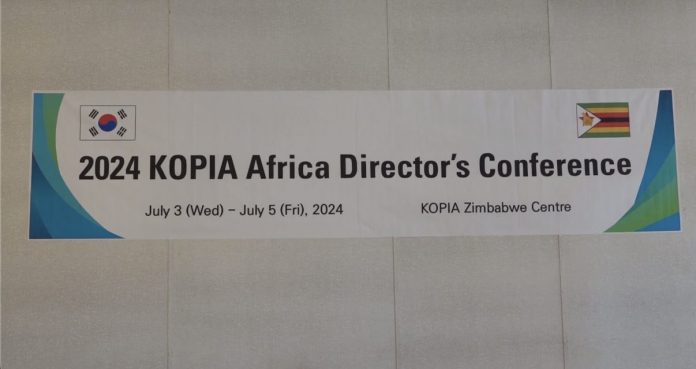
South Korea has reaffirmed its commitment to unlocking agricultural value with Zimbabwe. The Korea Partnership for International Agriculture (KOPIA) and the Scientific and Industrial Research and Development Centre (SIRDC) have joined forces to drive innovation and growth in the sector. This collaboration is expected to enhance Zimbabwe’s agricultural productivity and resilience, particularly in the face of climate change.
The partnership has already seen KOPIA inject at least US$150,000 into projects spearheaded by SIRDC, with a focus on local production of rice and sweet potatoes. The project, set to be implemented within the next two years, aims to expand cooperation in rice production and scale up sweet potato production. According to SIRDC’s principal investigator, Dr. Vimbai Samkange, “The project will be implemented from 2026, and we are looking at expanding cooperation within rice production. Already, there are pilot projects to produce sweet potatoes, which we also hope to expand going forward.”
READ ALSO:
Nigeria Selected to Host Headquarters of Africa Energy Bank
FIFA Extends Mutasa’s Tenure at ZIFA, Shifts Focus to Elections and Constitutional Reforms
The collaboration is a direct outcome of the strong diplomatic ties between the two countries, particularly following President Mnangagwa’s visit to South Korea during the Korea-Africa Summit last month. During the summit, President Mnangagwa signed Memoranda of Understanding (MOUs) that paved the way for strengthened cooperation in the agricultural sector, specifically targeting smallholder farmers. Dr. Seol Youngjoo, KOPIA’s Head of Africa, emphasized that “President Mnangagwa signed MOUs at the Korea Africa Summit, and this will strengthen cooperation in the agricultural area specifically to smallholder farmers.”
This partnership is expected to have a significant impact on Zimbabwe’s agricultural sector, enhancing productivity and resilience in the face of climate change. By leveraging South Korea’s expertise and technology, Zimbabwe aims to improve its agricultural output, increase food security, and promote sustainable farming practices. The collaboration also presents opportunities for knowledge sharing, capacity building, and technology transfer, ultimately benefiting smallholder farmers and the broader agricultural community.
As the project unfolds, it is expected to make a significant contribution to Zimbabwe’s agricultural development, aligning with the country’s vision to become a middle-income economy by 2030. The partnership between KOPIA and SIRDC serves as a testament to the power of international cooperation in driving agricultural growth and innovation, ultimately improving the lives of farmers and communities in Zimbabwe.


2 Comments
Pingback: Egypt's EXITS MENA Enters Saudi Arabian Market Through Strategic Joint Venture - Mbamali
2khf6f